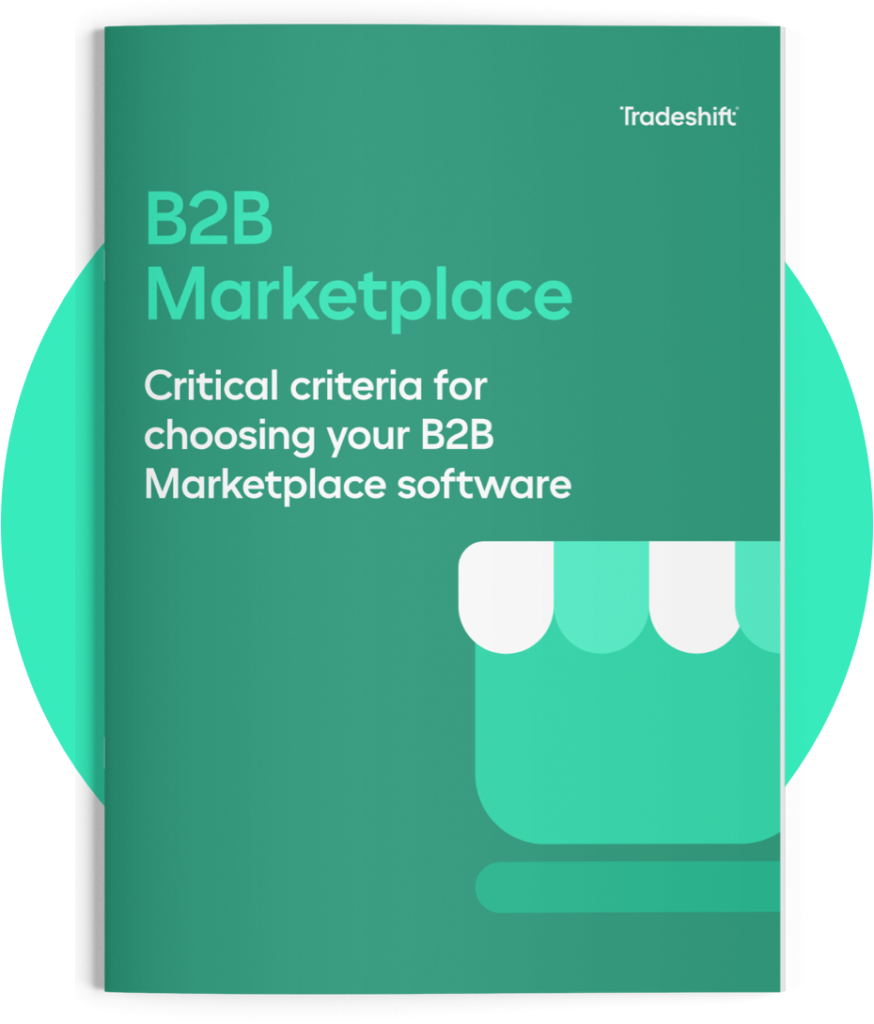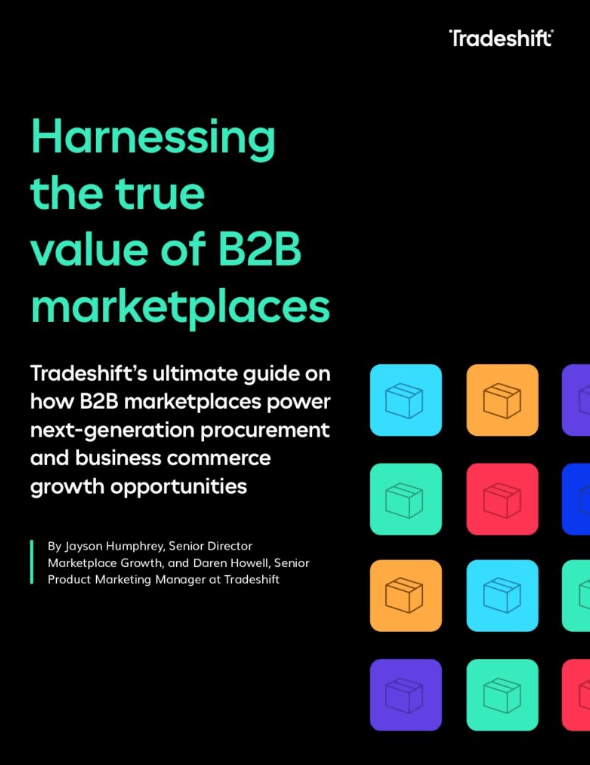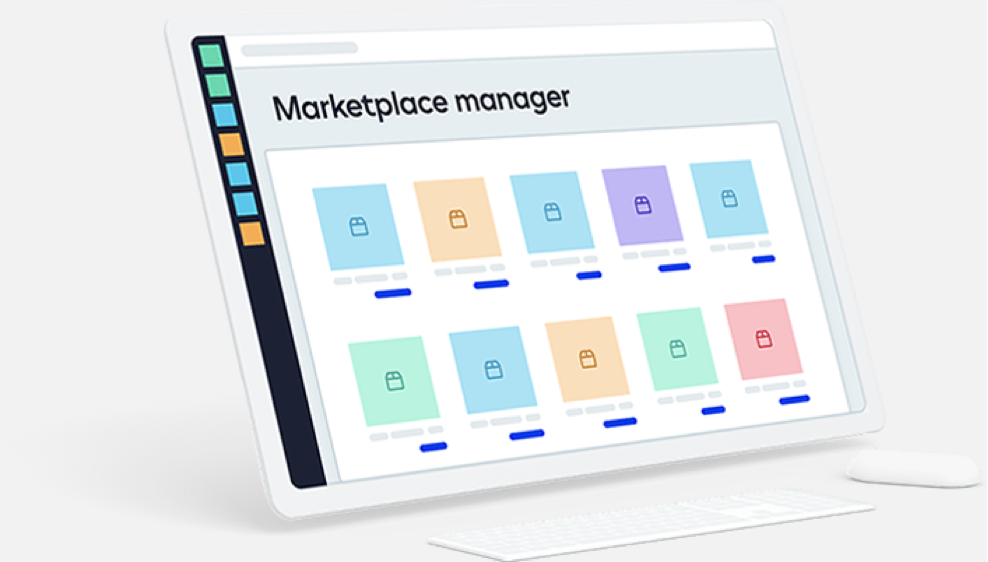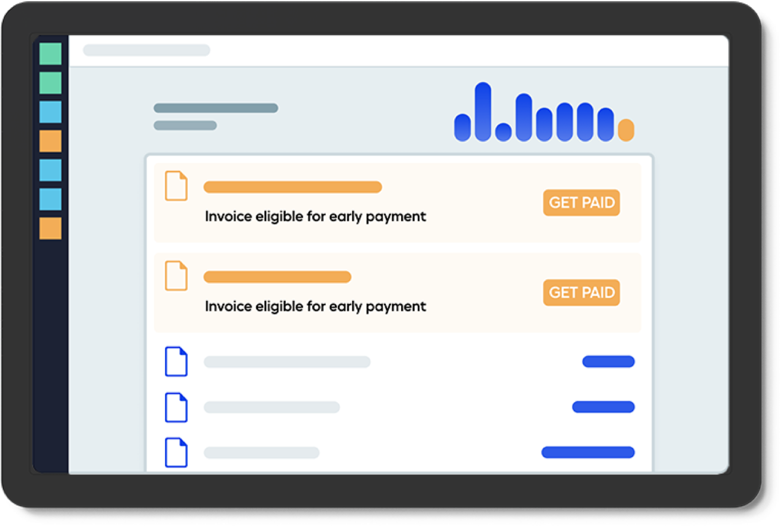eCommerce
B2B Marketplaces
Through our online B2B Marketplace platform, we’ll help you make B2B automation the default for all aspects of your business: from making orders, to invoicing, to other transactions and communications that take place between you and your sellers.
You may also be interested in…
B2B Marketplaces: A Genuine Challenge to Amazon’s Dominance
While Amazon has undoubtedly revolutionized the world of online shopping, the recent FTC lawsuit has cast a spotlight on the potential adverse consequences of unchecked market dominance.
The B2B Marketplaces Goldrush: How Your Business Can Profit
For this installment, we explain why large organizations should be skeptical about using sites like Amazon for business purchasing and why savvy procurement leaders should be turning their skills into a revenue- generator by becoming specialist B2B marketplace operators.
How Specialist Operators Can Tap Into the Next Wave of ‘Networked’ B2B Marketplaces
The next wave of networked marketplaces can help you to unlock lucrative new revenue streams in a B2B e-commerce market projected to reach USD $18.97tn
B2B Marketplaces – FAQ
B2B (business-to-business) e-commerce is defined by a commercial transaction that is carried out on a digital marketplace platform for the purpose of purchasing products, services, or data, carried out between businesses (as opposed to transactions between businesses and consumers which are known as B2C transactions).
A B2B marketplace is an online platform that helps businesses to connect with customers in other organizations in order to conduct buying and selling activities. These transactions are usually bulk transactions for large quantities of goods. The platform helps buyers browse and buy from a wide range of pre-vetted vendors.
The B2B ecommerce buying process, at its simplest, includes five steps that begin with realizing that there’s a need, then conducting research and evaluating potential ways to fill that need, and finally selecting the best supplier to provide that need and obtaining internal approval before purchase.
Steps in the B2B ecommerce buying process:
- Need evaluation
- Solution research
- Supplier selection
- Internal approval
- Purchase decision
There are several financial benefits your business can gain from using a global B2B e-commerce marketplace or platform including:
- Straightforward pricing and terms comparison: Marketplace platform software enables you to send inquiries to the sellers of your choice and then compare their offers to their competitors’.
- Standardized, automated purchasing processes: Automation and standardization can help you save time, increase efficiencies, and lower costs. B2B platforms have the capability to check alternate offers and prices in real time, execute a deal, and conclude and validate a contract—all in one place.
- Forecasting and spend monitoring: Today’s top performing B2B platforms have built-in tracking and monitoring tools to help predict future purchasing costs. The right B2B marketplace platform can enable forecasting and automation so you can be sure you’re getting the best pricing and terms.
- Access to thousands of products offered with negotiated pricing: With Tradeshift’s platform—and subsequent network that you build once you’re on the platform—every supplier you connect with is pre-vetted according to your preferences, all you have to do is choose the ones that are right for you.
The difference between the three main types of e-commerce are:
- B2C = Business to consumer (business trading with individual consumers)
- B2B = Business to business (business trading with each other)
- B2G = Business to government (business trading with local, state, or federal governments)
At the latest estimate, the global B2B e-commerce market was valued at USD $6,883.47 billion in 2021. The market is expected to grow at a Compound Annual Growth Rate (CAGR) of 19.7% from 2022 to 2030. Source: Grand View Research
Getting started with Tradeshift’s B2B marketplace platform is easy. Join more than 1.5M mid-market and enterprise customers across 190 countries by collaborating through Tradeshift. Find out how by requesting a customized demo today.
As a new generation of digitally-native employees join the workforce, they bring the expectations of their consumer life into the workplace. They expect tools that are simple, intuitive, collaborative and allow them to achieve frictionless outcomes. We realized that One of the biggest drivers of rogue spend is frustration with existing purchasing systems.
Tradeshift’s Marketplace’s Merchant of Record (MoR) SaaS provides a human-centric eCommerce solution enabling a Marketplace Operator/Facilitator to invite Vendors and Buyers to their curated Marketplace network/platform to trade goods and services.
Outlining the high level benefits to your decision makers may assist you in making the business case to try Tradeshift Marketplace:
For Sellers:
- Increased efficiencies in invoice automation reduce invoicing cost – contributing to lower cost of doing business
- Fully digitalized transactions reduce risk and increases efficiencies
- Digital transactions reduce errors and speed payment
- Greater access to buyers means less possibility of loss of profitability during economic downturns
For Buyers:
- Procurement is an expensive operation. Marketplaces work for you as competition produces economic efficiency and value one buyer cannot yield alone.
- Control the user experience and spend management by establishing what end users see and don’t see.
- Buyers using existing P2P solutions can integrate easily to access these controls, new curated content from Marketplace Operators
- Economic efficiency reached faster by efforts beyond the Buyer’s own efforts, through growth of network of marketplace
- Global enterprise companies who would like to leverage and monetize their well established network of either Sellers or Enterprise Buyers–or both.
- Companies who would like to be leaders in B2B eCommerce and understand the value of the network effect by providing B2C-like user experience in the B2B supply chain controlled environment.
- Companies who would like to play a BPO role for their large Enterprise Buyers and are willing to facilitate transactions as a Reseller (i.e. BPO, GPO).
- Companies who would like to directly offer financing (i.e. factoring) solutions to their network of Sellers and/or Buyers as a part of the Marketplace integrated Services (i.e. Banking & Insurances).
- Distributors who are willing to expand their product portfolio to the market exponentially without upfront investment in the inventory. Also those well established distributors who are looking at operational cost optimization via cutting on order and goods handling process and transportation.







